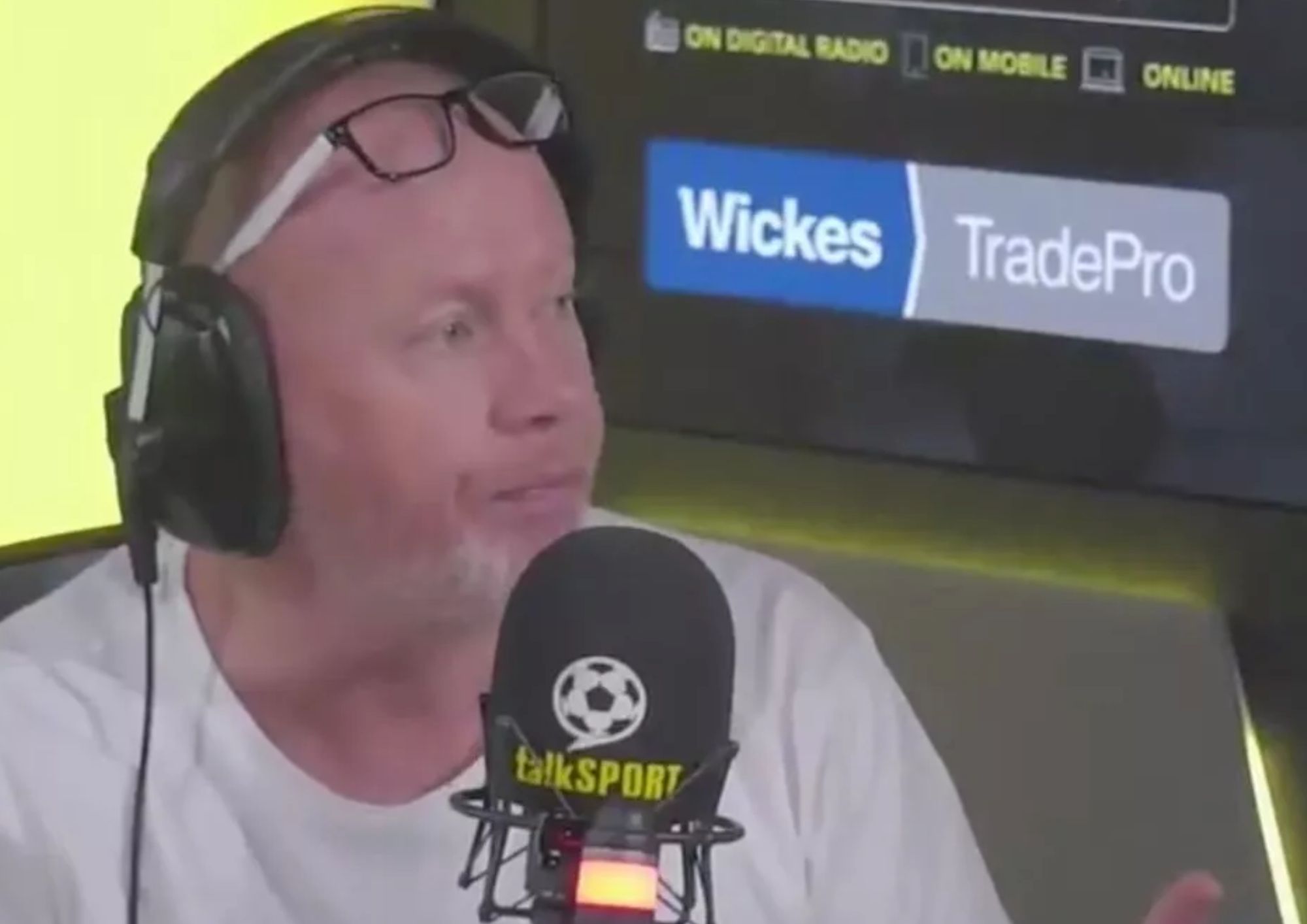Gooner Perry: ‘The only way to beat the drink was to seek help’
Former Arsenal player said talking about his alcoholism had been a step to recovery
Friday, 8th September 2023 — By Richard Osley

Perry Groves spoke candidly about being hooked on alcohol – before getting support and going sober [TalkSPORT]
CULT Arsenal star Perry Groves this week urged anybody struggling with alcohol to seek help as the only way out of the addiction.
The winger, who played for the Gunners in the 1980s and 1990s and has led guided tours around the Emirates Stadium in his retirement, said this week he had been in “denial” for years.
Mr Groves, 58, revealed what he had been going through during an appearance on TalkSPORT and told listeners: “The reason I’ve come on is if it helps one person out there who listens to this, my story and they reach out for help, that’s what I did…I am an alcoholic and I’m not ashamed to admit it. Now I’ve been made more aware of what it is, it’s actually a disease. It’s a disease whether you’re a drug addict, a gambling addict, or whatever addiction you have.
“If you have alcoholism, it’s your brain, you don’t work in the same way a normal person does.”
Mr Groves said he sought help through the NHS – and spent 28 days in rehab at Sporting Chance, a clinic set up by his former Gunners teammate, Tony Adams. “No matter how bad you think the situation is, or how desperate you feel, there is help,” he said.
“If you talk to somebody and you reach out, there is help. It doesn’t matter how bad you think the situation is, you can reach out to the Samaritans, whether you think you’ve got an addiction, you can go to AA [Alcoholics Anonymous] meetings all around the country, you can just walk in there.
The NHS were brilliant with me as well.” Mr Groves added: “There’s help there for everybody, but if I didn’t go for it, I don’t think I’d be here. I genuinely think they saved my life, because I was going nowhere. I had nothing.”
Mr Groves – the subject of the terrace song We all live in the Perry Groves World – was in the Arsenal set-up at a time when the infamous “Tuesday Club” was operating in the early 1990s. Players usually had Wednesday mornings off from training and the “club” would spend the afternoon – and evening – in the pub, if the team had won the previous weekend.
Along with other retired players, Mr Groves has often regaled supporters with the excesses of the time – a sharp contrast to the carefully controlled world of the Premier League. At the time, some saw this as a useful team-bonding experience and Arsenal – despite the influence of alcohol over some of their players’ lives – won two league titles in that period.
It is no longer viewed in the same way and Arsene Wenger’s arrival as manager at the club in 1995 and a change in standards and expectations of increasingly well-paid players changed.
Mr Groves said he had been sober for seven months and said this was now his “biggest achievement” – beyond the three medals he picked up in the red and white shirt.
A record number of people died from alcohol-related deaths during the Covid pandemic, according to governments statistics, and health chiefs remain concerned. The NHS says that regularly drinking more than 14 units a week can cause serious health problems.
A pint of strong lager equates to around three units, while a bottle of wine can amount to 10.
HELP IS AVAILABLE
If you are concerned about your drinking there are a number of places where help and support can be accessed.
A good starting point is to talk to your GP about what you are experiencing and the many options available.
You can also find advice at www.lowermydrinking.com
Support is also available at: Integrated Camden Alcohol Service (ICAS) is for people who need some specialist advice. You can self-refer by calling for an appointment 020 3227 4950 and assessment can be made on what treatment could be useful.
Alcoholics Anonymous (AA) has groups all around the UK with support meetings which many recovering heavy alcohol users say lead to impactful changes in their lifestyles. The organisation has a helpline on 0800 917 7650.